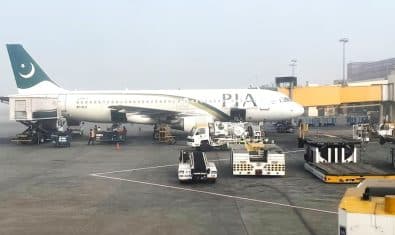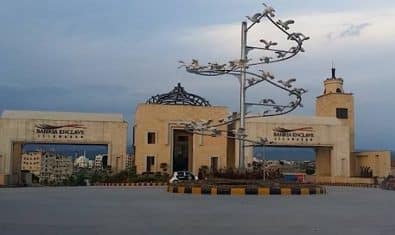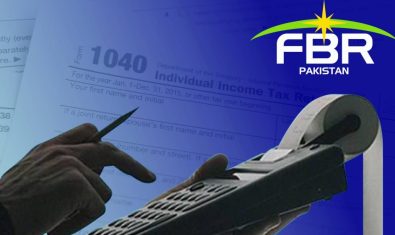The government is finally looking to import 100,000 tons of sugar from Brazil as a potential shortage is on the cards during the two-and-a-half months before the sugarcane crushing season begins in late November.
Interestingly, the July 2023 exports stood at 5,542 tons which is more than five times higher than the quantity exported during June 2023, but we will talk more about it later.
More so, we were told we had a 1.2 to 1.7 million tons of sugar surplus when the government was permitting exports last year, then What happened? For that, we have to backtrack a little!
The federal government imposed a total ban on sugar exports in May 2022 despite the Pakistan Sugar Mills Association strongly advocating that Pakistan could earn more than $1 billion as the prices were high at that time. But November came and amid the declining foreign reserves, the government gave the green light to first export 100,000 tons of sugar and then raised the number to 250,000 tons in January 2023.
It must be noted that the sitting Federal Minister of National Food Security and Research at that time opposed the plan on multiple forums but exports were allowed anyway.
“The government cannot allow the export of sugar and then import at higher prices,”, said Minister Tariq Basheer Cheema in November 2022.
In April, the Sugar Advisory Board, a federal entity revised the sugar price to Rs. 98 per kg on which Lahore High Court issued a stay order. Efforts from the provincial government to fix the prices were also met with a similar response.
Meanwhile, sugar smuggling through the Afghan border was rampant and despite the apparent implementation of a track and trace system. The Punjab Food Department said that nearly 800,000 tons of sugar has been smuggled across the western border. The fact that the Punjab Food Department is sharing the figures like a news organization instead of taking strict action demands a conversation on its own.
It worsened the market sentiment and retail prices have gone up by nearly 70-80 percent since April to Rs. 170 to Rs. 185 per kg and may cross Rs. 200 per kg soon. Ex-mill prices have already touched Rs. 16,500 per 100kg (today’s average price), a 37 percent increase in less than two months and will cross Rs. 18,000 in the upcoming weeks.
What Went Wrong?
Foremost, the ex-minister of National Food Security and Research has alleged that data on stocks provided to the government was fudged. But, let’s not go there and say we had the surplus and we let a third of it be smuggled and kept exporting it even raising the figure by five times in July 2023 before we finally realized we had to ban it. How does that sound?
The arguments from the Food and Agriculture Department officials in private conversations are typical. They throw the responsibility on the Federal Board of Revenue while acknowledging that it’s virtually impossible to cover the huge Afghan border but I guess the point of checking the smuggling would be a little before it reaches the border, wouldn’t it?
But there is one more factor that is least talked about during these conversations and that is trading. Pakistan does not have a documented commodity market at least at scale but when it comes to undocumented trading, sugar is one of the biggest trading commodities due to its volatile and high-stakes nature. The evidence of forward contracts and satta in the sugar industry are well documented in the Sugar Inquiry Committee Report of 2020 and cause unnecessary speculation and price hikes in the market.
Sugar Mills have to finance the buying of sugarcane during the crushing season and to do so, they oversell their stocks to get cash. These stocks remain lying in the sugar mills and are traded more than a dozen times. One just has to call someone and transfer the amounts and then just tell them to sell at a later date without ever even looking at the commodity”, explained a market consultant talking to ProPakistani
“What if we tell you that there are people who have made up millions in profits in just 15-20 days by trading and hoarding sugar?” he mentioned.
He said that it ultimately jacks up the prices to the point where the market starts to feel a shortage long before there is actually a shortage. The government is responsible for ensuring that the sold sugar stocks are lifted within three days after selling but this rarely happens
After the Food Department recently asked all the sugar mills in Punjab for details on the stocks sold to dealers/brokers but yet unlifted, some sugar mills like Ittehad and JDW have imposed Rs. 20 per bag per day fine if the stocks are not lifted which will be implemented from Saturday but the move is too late from both government and sugar mills as the quantity hoarded privately is huge and is not coming in the market before these people squeeze all they can.
The arguments we often hear for the price hike put the blame on the rising cost of production, sales tax and policy rates. Some also argue that there is a natural two-year cycle of sugarcane of excess and shortage where sugar mills and farmers make huge sums due to high prices in years of shortage which brings more farmers to sugarcane, causing the excess but things are not that simple.
Sector That Never Lose
Sugar is Pakistan’s second biggest agro-based industry providing employment to 1.5 million people and its production accounts for 3.7 percent of agriculture’s value addition and 0.9 percent of GDP. During 2022-23, sugarcane was cultivated on 1,319 thousand hectares showing an increase of 4.7 percent compared to 1,260 thousand hectares last year.
The main factor that contributed to more area sown was the lucrative market prices of last year. Its production increased by 2.8 percent to 91.111 million tons over the previous year‘s 88.651 million tons. But over the years, the sugar industry has been criticized for building empires on a highly water-intensive crop in a country ranked third in terms of water scarcity and having regulatory protections for growth in terms of the high barrier to entry, 40 percent duty on sugar imports and support prices.

Listed Sugar Sector profits have grown by 23 percent YoY during 9MY2023 (Oct-June) and have more than tripled from 4 billion during 9MY2021 to Rs. 14 billion during 9MY2023 while the net profit margins have also doubled during the same time despite the rise in borrowing costs and sugarcane support prices. In years of excess, sugar mills would get export quotas and subsidies while they make huge profits in years of shortage anyway.
Sugar exports are only possible if the domestic sugar prices are lower than the international prices so exports are mostly allowed on the back of subsidies. Only a handful of people have made billions of this game of which nobody is willing to take responsibility because there is a fundamental argument for food sovereignty.
What we should tell to the consumers who would have been getting cheaper sugar in a better competitive market with fewer protections for the sugar industry and more protections for them?

We can also call sugar an unhealthy luxury whose usage must be limited but unless someone is willing to go on the news and tell 240 million people under extreme inflationary pressure to actually reduce their consumption, that argument needs to be put in the back drawer.
Moreover, the data shows that sugar consumption has only increased over time with the hike in prices and that’s exactly what some people in the sugar and trading community are always banking on.
It’s also argued that the sugar sector is extremely competitive but that’s the case within limited territories and circumstances where cane areas (sugar mill’s surrounding area) are too close and they often have to compete for the sugarcane during the years of shortage. In reality, still, nearly two dozen companies account for more than half of the national production and though the number has doubled since 2019, these are still powerful enough to manipulate the market and influence policy and administration.
The more surprising factor is that we have been here before in 2020 when both the sugar and wheat crisis grappled the country after exports were allowed without considering the implications on the domestic market and Pakistan ultimately had to import sugar.
But the recommendations made by the Sugar Sector Reforms Committee constituted post-FIA Investigation in 2021 were thrown out of the window which had called for pricing based on sucrose content in line with international practice, keeping import open all the time and export-only under limited circumstances, quarterly Inspections by FBR and massive fines up to Rs. 75 million on violations.
Domestic import tariffs of 40 percent do not let domestic prices respond to the fluctuations taking place in the international market, protecting the domestic sugar industry from competition in the international markets. Other countries having a comparative advantage mainly earn from sugar by-products, which have comparatively higher international prices than sugar.
In these countries, sugar is treated as a by-product and sold at a low price, unlike Pakistan. So there was a more severe crisis, there was a report with answers but I guess there will be a lot more of them before we get our act straight.
Sugar is priced at $728 per ton at the moment in the international market which comes down to more than Rs. 220 per kg if it’s imported based on the interbank exchange rate. Now tell me who is going to bear the difference of Rs. 40-60 between the domestic price and the import price? Government is only trying to suppress the market with this news otherwise imports will only raise the domestic prices further” commented a wholesale trader while talking to ProPakistani.
“The impression of shortage of sugar at this point in time is not understood. Pakistan at the outset of the sugar season 2022-23 had stocks of 8.15 million tons and our monthly consumption is 0.65 million tons. From November 2022 to July 2023, the consumption was 5.85 million tons for 9 months. For the rest of the three months, Pakistan needs 1.95 million tons, whereas stock availability in Pakistan is 2.3 million tons.” stated a press release issued by Pakistan Sugar Mills Association (PSMA).
Talking about the price hikes it said that the international sugar market is highly volatile causing leakage from the western border as our sugar being very popular due to its high quality and low domestic prices encourages smuggling.
The statement added that nearly 70 percent of the sugar goes to commercial use and only 30 percent is consumed by domestic consumers of which 15 percent is poor for which government already has different arrangements like utility stores. But taking the whole sugar sector hostage to over-regulation, which Courts have always discouraged from time to time, is not only unfair but detrimental to the growth of this sector. If this over-regulation persists, it will result in further reduction of sugarcane plantations and the government will have to spend billions of dollars to make up for the deficiency of domestic sugar production.
PSMA also acknowledged that there is potential for shortage during the upcoming season which the government needs to deal with preemptively.
Now whether the government is serious about importing sugar or not, it highlights the confidence and impunity with which the prices are jacked and the public is deprived of the right to accessing essential commodities at affordable prices through smuggling, speculation and satta.






















Army is asking that why people of Pakistan are turning against them.
Such news are one of the reasons. We all know that Jehangir Tareen is a sugar barren and he is the man of establishment. Similarly many politicians are controlling sugar mills and acting like a Mafia.
This mafia is protected by our own Establishment. And look what how they are wrecking havoc with Pakistani Awaam.
Can we fight against this mafia and the answer is No. They have the protection of one powerful institute of Pakistan .
Nice⚡